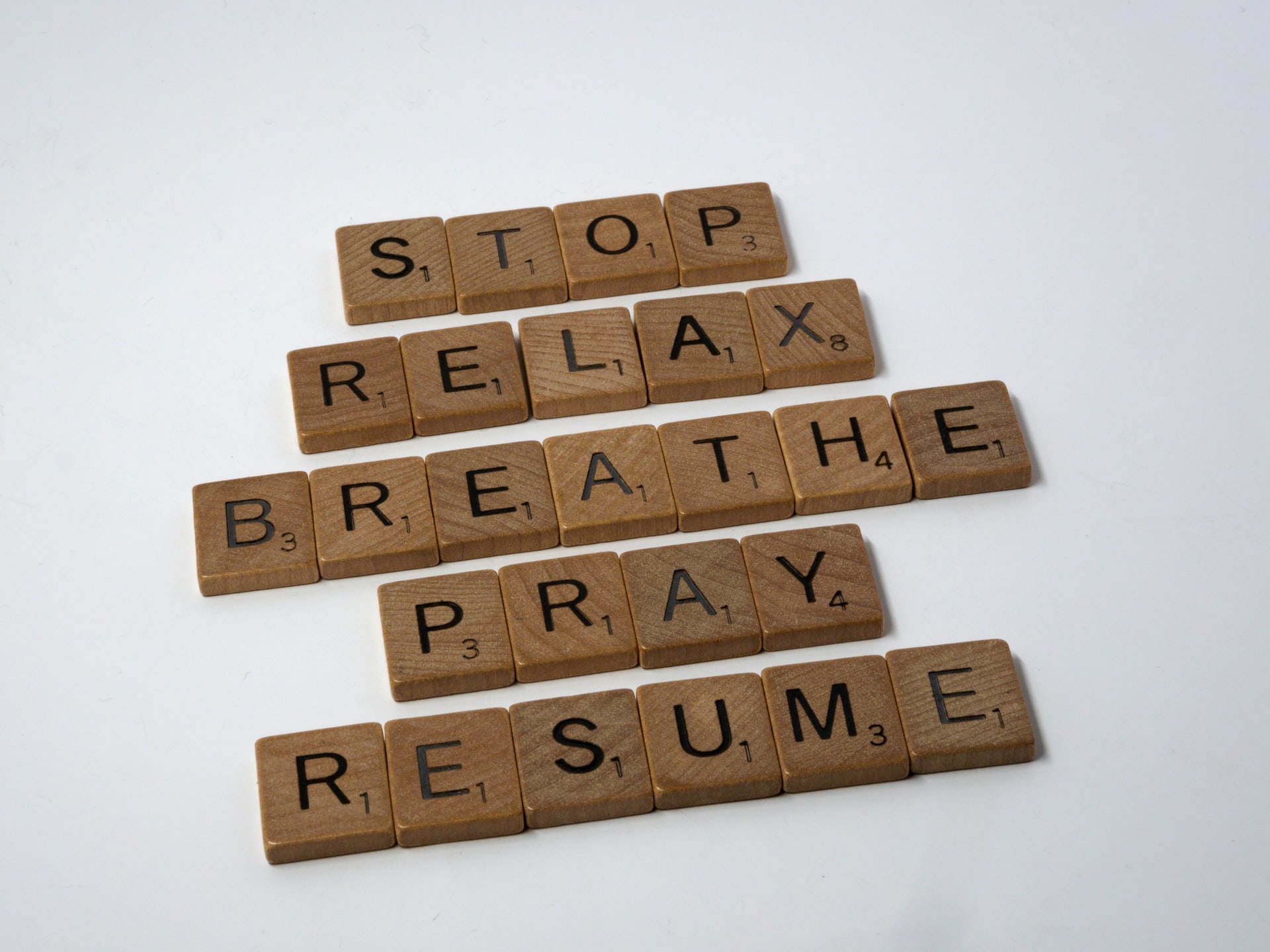Have you ever found yourself feeling frustrated or angry with someone? It may have been something small they said or did that set you off. Perhaps they cut you off in traffic, or they said something that left you feeling slighted or betrayed. Our anger can be kindled for any number of reasons, and if it isn’t expressed well, that anger can deal an untold amount of damage to ourselves and the people around us.
 In dealing with anger, one place we can turn to for wisdom is the Bible. The times may have changed, but people have remained the same. The things that drive us and the impulses at work within us today aren’t that different from our biblical forebears. One story early on has become illustrative of how destructive anger can be.
In dealing with anger, one place we can turn to for wisdom is the Bible. The times may have changed, but people have remained the same. The things that drive us and the impulses at work within us today aren’t that different from our biblical forebears. One story early on has become illustrative of how destructive anger can be.
Soon after our rebellion, Adam and Eve had two sons, the infamous Cain, and his brother Abel. Due to his jealousy over Abel’s sacrifice to God being accepted when his was not, Cain killed his brother Abel.
This didn’t happen immediately – Cain was “very angry,” and God spoke with him to warn him to overcome that anger, saying, “…sin is crouching at your door; it desires to have you, but you must rule over it” (Genesis 4:7). Rather than him ruling over it, Cain’s anger mastered him, and he lured his brother out into a field and killed him in cold blood.
Now, your anger may not lead you to do something as egregious as murder, but if it masters you, it can lead you to do things that you regret, like speaking words in anger that you would never say otherwise.
What are anger issues?
Most people get angry at one point or another. Does that mean we all have anger issues? The term “anger issues” refers to when our anger is out of control, and we don’t express it in a healthy way. When you can’t stop yourself from being angry or control what you say and do when you’re feeling that way, that’s a good sign that you have anger issues.
 Unhealthy ways of expressing anger include letting anger explode into violence, whether verbal or physical. It also includes suppressing your anger, leading you towards moody silences, passive-aggressive behavior, using non-verbal cues like rolling your eyes, and being sarcastic or cutting in your remarks towards others. So, broadly speaking, you can tell whether you have anger issues if:
Unhealthy ways of expressing anger include letting anger explode into violence, whether verbal or physical. It also includes suppressing your anger, leading you towards moody silences, passive-aggressive behavior, using non-verbal cues like rolling your eyes, and being sarcastic or cutting in your remarks towards others. So, broadly speaking, you can tell whether you have anger issues if:
- Your anger has affected important and other relationships.
- You’ve gotten violent when you’re feeling angry.
- You can’t seem to let go of resentments and grudges towards people.
- You’ve said and done many things in anger that you regret.
- You just can’t seem to control your anger.
If this is you and you realize that anger is an issue for you, consider seeing a therapist or another mental health professional for help to get your anger under control. The people in your life will appreciate that decision.
Biblical wisdom about anger
It’s no surprise that the Bible has wisdom about dealing with anger. Some of the encouragements in the Bible about anger reflect self-help techniques you might learn in anger management. Below are a few things to consider in helping you deal with anger well.
It’s about self-control.
At root, anger issues are about lacking control over anger. Recognizing the fact that your anger has mastery over you, and not the other way around, is a great start to addressing the issue. If you think that your anger isn’t an issue, or you believe you have it under control when you don’t, you won’t get to work addressing the issue.
Proverbs 16:32 says “Better to be patient than powerful; better to have self-control than to conquer a city.” Why is it better? Because power coupled with impatience can mean destruction for you and the people around you; because without self-control what is gained today can be easily lost tomorrow.
The book of Proverbs goes on to say elsewhere that, “A person without self-control is like a city with broken-down walls.” (Proverbs 25:28). A city with broken walls is open to invasion from anyone who takes a shine to it. Without self-control, we’re at the mercy of whatever emotions or thoughts come our way, and we are powerless to defend ourselves against them.
Slow down.
My dear brothers and sisters, take note of this: Everyone should be quick to listen, slow to speak and slow to become angry because human anger does not produce the righteousness that God desires. – James 1:19-20
 Sometimes we can jump to conclusions about what people are saying, and our anger response is triggered. Instead of taking a beat to listen and hear others out, our assumptions can lead us into a downward spiral into anger. So slow down and listen to what other people are saying.
Sometimes we can jump to conclusions about what people are saying, and our anger response is triggered. Instead of taking a beat to listen and hear others out, our assumptions can lead us into a downward spiral into anger. So slow down and listen to what other people are saying.
If you need to, take time out to regain perspective before you reengage. Think before you speak. Take a breath (or a few deep ones) and try to relax. You gain nothing by rushing headlong into a conversation and getting angry in the process.
Get some exercise.
Working out does wonders for our bodies and minds. Exercise helps to reduce the amount of stress hormone (cortisol) in our bodies while increasing the so-called “feel-good” brain chemicals like dopamine and endorphins. So, training your body (whatever form that takes for you) reduces stress while elevating your mood.
Physical training is good, but training for godliness is much better, promising benefits in this life and in the life to come. – 1 Timothy 4:8
Putting our bodies through the paces and training them does us good; spiritual discipline even more so. Working out helps you to better cope with the physical causes and effects of stress that may make it easier for anger to hold sway while digging deeper helps us to address some of the root causes of our anger.
Self-awareness/sticking with “I” statements.
How we frame and address problems goes a long way toward helping us deal with them in healthy ways.
How can you think of saying, “Friend, let me help you get rid of that speck in your eye,” when you can’t see past the log in your own eye? Hypocrite! First get rid of the log in your eye; then you will see well enough to deal with the speck in your friend’s eye. – Luke 6:42
 In saying these words, Jesus was calling people to introspect a little before criticizing others, to slow down in humility, and consider our own faults. Being a bit more self-aware helps us to not be overly critical of others or fixate on their errors.
In saying these words, Jesus was calling people to introspect a little before criticizing others, to slow down in humility, and consider our own faults. Being a bit more self-aware helps us to not be overly critical of others or fixate on their errors.
We are well-served using “I” statements to describe the problem before us in a specific and respectful manner. Instead of saying “You never help or do any housework,” we might instead frame it as “I’m frustrated that you left your dirty clothes on the ground instead of putting them in the hamper.” We’re not coming in hot as judge, jury, and executioner, but as someone willing to engage in a conversation.
Express your anger in a healthy way.
Anger is not always a bad emotion. It can tell us that something isn’t right in our world, so it helps us to pay attention to it. What we do with and in our anger is the issue. So, in saying, “In your anger do not sin.” (Ephesians 4:26), Paul means that not all anger is sin.
One way to avoid letting anger lead you into sin is to not speak until you are calm. That way, you do not say things you shouldn’t. When you talk to others, you don’t need to slander them, talk down to them, or assault them verbally/physically – after all, they are made in God’s image and worthy of dignity.
Let your anger go.
Lastly, don’t hold grudges. Anger is a powerful emotion that can crowd out other emotions, and by letting your anger go through forgiveness, you open possibilities for your relationships with others.
Have you ever noticed that if you’re angry with someone, you struggle to give them the benefit of the doubt, and it’s easy to misinterpret their words and intentions? Anger taints how we see other people. Holding onto it and developing a grudge against someone only paves the way for us to feel even more anger toward them.
Get rid of all bitterness, rage, and anger, brawling and slander, along with every form of malice. be kind and compassionate to one another, forgiving each other, just as in Christ God forgave you. – Ephesians 4:31-32
If we are honest with ourselves and recognize that we need help to get our anger under control, it’s important to take the next step and seek that help from a mental health professional. The people around us will appreciate that bold step.
Photos:
“Thinking”, Courtesy of Nubelson Fernandes, Unsplash.com, CC0 License; “Stop, Relax, Breath, Pray, Resume”, Courtesy of Brett Jordan, Unsplash.com, CC0 License; “Contemplation”, Courtesy of Ben White, nsplash.com, CC0 License; “Sunset”, Courtesy of Harli Marten, Unsplash.com, CC0 License





